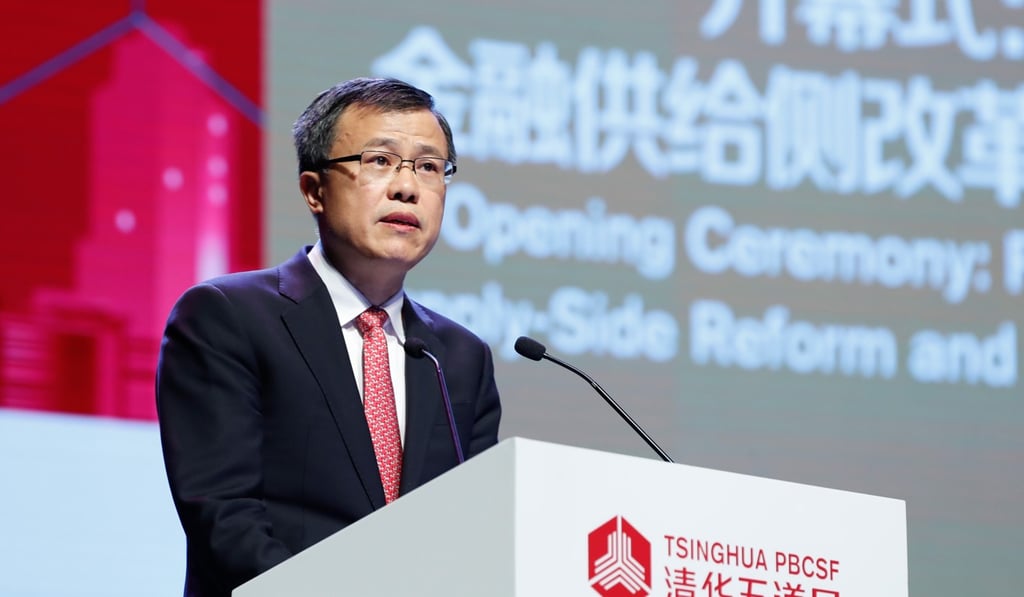United States’ escalation of trade tensions ‘solves nothing’, China’s financial regulator says
- Damage caused by Washington’s moves very limited, Communist Party chief of People’s Bank of China Guo Shuqing says
- Allegations Beijing engages in forced technology transfers ‘groundless’

The United States’ efforts to escalate the trade war will do only limited damage to the Chinese economy and nothing to help resolve the issue, the Communist Party chief of the People’s Bank of China said on Saturday.
In a written speech delivered by a deputy at the Tsinghua PBCSF Global Finance Forum in Beijing, Guo Shuqing spoke out against the criticism levelled by Washington on issues such as forced technology transfers, currency manipulation and state capitalism, all of which have been hot topics in the recent trade negotiations between the two nations.
“The US escalation of trade tensions won’t solve anything,” the 62-year-old said. “The hurt it has caused the Chinese economy is very limited.”
Guo, who is also chairman of the China Banking and Insurance Regulatory Commission (CBIRC), was forced to cancel his appearance at Tsinghua University at the last minute due to an “urgent matter”, the event’s organisers said, without elaborating. His speech was read by CBIRC spokesman Xiao Yuanqi.

On the subject of forced technology transfers, Guo dismissed the United States’ allegations, describing them as “groundless” and a “huge humiliation to Chinese people”.